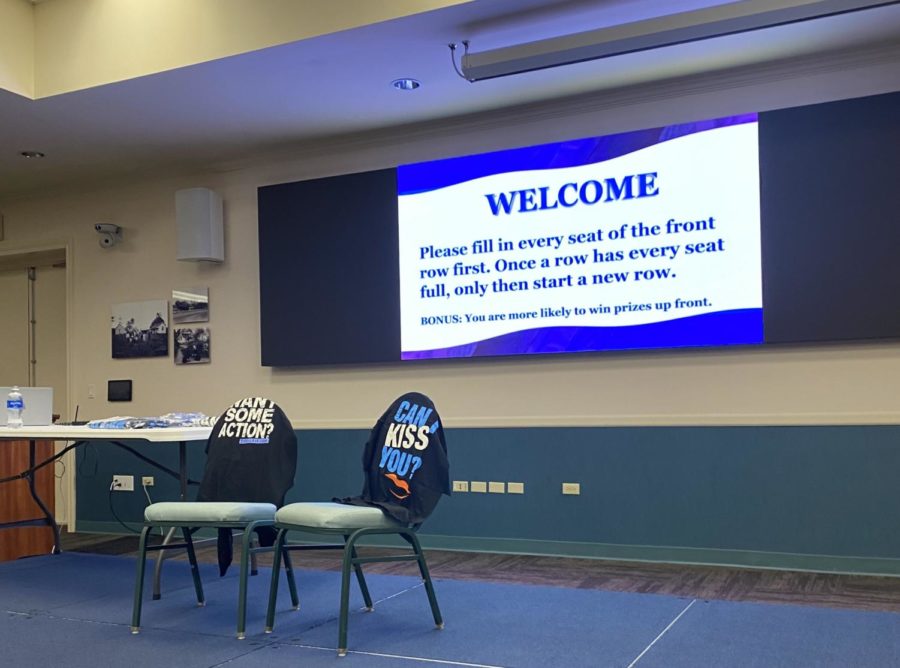‘Can I Kiss You?’ Leaves Impression on Students
The opening set up of the “Can I Kiss You?” presentation.
“Can I kiss you?” has been plastered around Chaminade’s campus. The vague event flyer had students questioning what the event entailed, though the flyer was hinting at a presentation about consent. After months of wondering, about 25 students and a handful of faculty and staff gathered in the Clarence T.C. Ching Conference Room at Chaminade University.
Mike Domitrz, the founder of the Center of Respect and creator of the “Can I Kiss You” presentation, led an interactive and lively presentation on Thursday on how to ask for consent and the importance of asking for consent. He approached the topic by addressing society’s excuses not to ask for consent, such as fear of rejection and awkwardness. Domitrz gave the audience strategies on how to approach situations that could lead to sexual assault and how to help victims.
In 2003, Domitrz founded the Center for Respect in Wisconsin, that educates middle schools, high schools, universities, military installations, and organizations around the world on consent and sexual assault through a variety of mediums but mostly through presentations. Domitrz’s passion for this started in 1989 when he was informed that one of his older sisters had been raped. From there, he developed this thought-provoking program.
Throughout his presentation, he constantly reminded the audience to set boundaries with their partner. He stressed that nobody owes their partners anything, especially sexual pleasure.
“If you do not want to do something, you can say no,” Domitrz said. “The main reason why people say no is because they do not want to be mean, and it is not mean to set a boundary.”
In most cases, many partners will base their actions on their partner’s body language. Domitrz mentioned how Hollywood movies had faltered the consent movement. He blames “the look” – a cliched scene in movies when partners look at each other to signal they want to kiss. Basing consent on body language is simply playing a guessing game.
“Imagine how much time you would save if you had simply just asked, ‘Can I kiss you?’” Domitrz said.
Partners can waste two hours waiting and guessing whether or not they should kiss their partner. It’s part of the “Netflix and Chill” culture of playing a movie, giving hints, and possibly making a move within the movie.
In addition to consent, Domitrz wanted to educate students on how to approach sexual assault situations by emphasizing that intervening is better than nothing at all. Many people will find excuses as to why we should not intervene. Domitrz’s response to any excuses is, “It’s who I am.”
“Every person, no matter the color, age, disability, gender, deserves to be treated with respect and dignity,” Domitrz said.
Domitrz left the audience with a task at the end of the night to call three significant people in their lives and remind them that they are always here for them. In addition to that, he gave tips on how to help a victim who confides in them by offering them the option to choose what happens next.
“It was such a heartwarming presentation,” said Trachelle Iwamoto, a first-year Criminal Justice major from Kaua’i. “He gave us answers to excuses that are given all the time. ‘It’s who I am’ held a strong impact on me through the presentation.”
Chaminade’s Office of Student Affairs, along with the Residence Hall Association, Chaminade Student Programming Board, Chaminade Student Allocation Board, and the Human Resources office, invited Domitrz to Chaminade for two sessions. The first session was conducted earlier in the afternoon for faculty/staff training.
